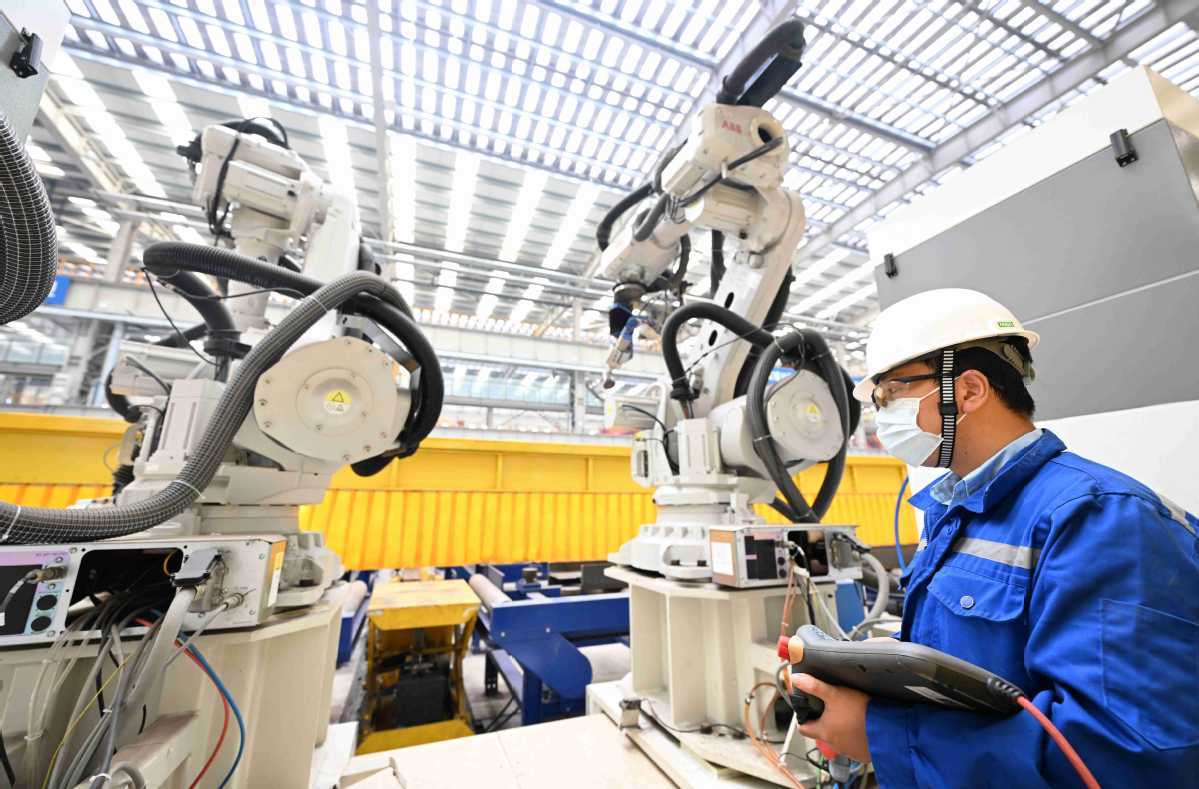Digitalization gaining ground in China on wider application


IDC: Investment from Chinese firms into digital solutions to boom in next 5 years
Chinese enterprises' expenditures on digital businesses will witness speedy growth in 2023, as cutting-edge digital technologies, such as 5G, artificial intelligence and cloud computing, have been increasingly applied into a wide range of fields and integrated with the real economy, according to market research company International Data Corp.
The digital transformation of enterprises will stand at an inflection point this year and the next five years will still be a golden period for pushing forward digitalization, IDC said, expecting more than 50 percent of the global GDP will be driven by digitally transformed enterprises in the next five years.
"Chinese companies' investment in digital transformation is expected to quadruple its economic growth in 2023, with the compound annual growth rate of digital business expenditures reaching 19.1 percent between 2023 and 2026," said Wu Lianfeng, IDC China vice-president and chief research analyst.
Wu said by 2027, 40 percent of the total revenue for China's top 2,000 companies will be generated by digital products, services and experiences, while the current figure stands at less than 20 percent.
Spending on digital technologies will still be the key focus of both global and Chinese company executives. The number of technology enterprises among China's top 500 companies will double by 2027. In addition, by 2024, 40 percent of CEOs from China's top 2,000 companies will ink strategic relationships with their cloud computing service providers, according to IDC.
The proportion of enterprises' expenditures in software as a service, or SaaS, business across the globe is likely to surpass 50 percent in total expenses. By 2026, enterprises that fail to effectively address the talent and digital skills gap in their organizations will constrain revenue growth opportunities by 20 percent.
With the blossoming of 5G, big data, AI and other innovative digital technologies, the digital economy is gradually becoming the integral driving force for economic growth.
The scale of China's digital economy reached 45.5 trillion yuan ($6.6 trillion) in 2021, ranking second in the world and accounting for 39.8 percent of the country's GDP, according to a white paper released by the China Academy of Information and Communications Technology.
Enterprises in the fields of finance, telecommunications and the internet have taken the lead in digitalization and invested heavily in digital technologies, Wu said, adding that governments around the world have attached great significance to digitalization.
Digital transformation is also accelerating in the new retail, high-tech manufacturing and transportation sectors, and there is huge room for growth in agriculture, Wu said.
Last January, the State Council, China's Cabinet, announced a plan to further promote the development of the digital economy during the 14th Five-Year Plan period (2021-25). The country aims to raise the proportion of the added value of core digital economy industries in its GDP to 10 percent in 2025, according to the plan.
Wu also pointed out that Chinese enterprises are facing mounting difficulties and challenges in the process of digital transformation, such as a lack of innovation and collaboration among various departments of enterprises, budgetary shortfalls and inadequate skills. He called for enterprises to come up with long-term plans for digital transformation and continuously pour money into this field.
The digitalization of enterprises serves as the cornerstone of the digital economy, said Li Wei, deputy head of cloud computing and big data research at the CAICT, adding that the COVID-19 pandemic has accelerated the development of cloud services and cloud computing applications, which has played a vital role in bolstering the development of the digital economy.
Enterprises should speed up the pace of digital transformation, concentrate on consumers' requirements, and integrate online and offline channels, as well as promote the transformation and upgrading of traditional industries, Li said.
Xiang Ligang, director-general of the Information Consumption Alliance, a telecom industry association, said emerging digital technologies represented by 5G, big data and AI have played a critical role in enhancing operational efficiency, cutting costs and improving the core competitiveness of traditional industries amid downward economic pressure.




































